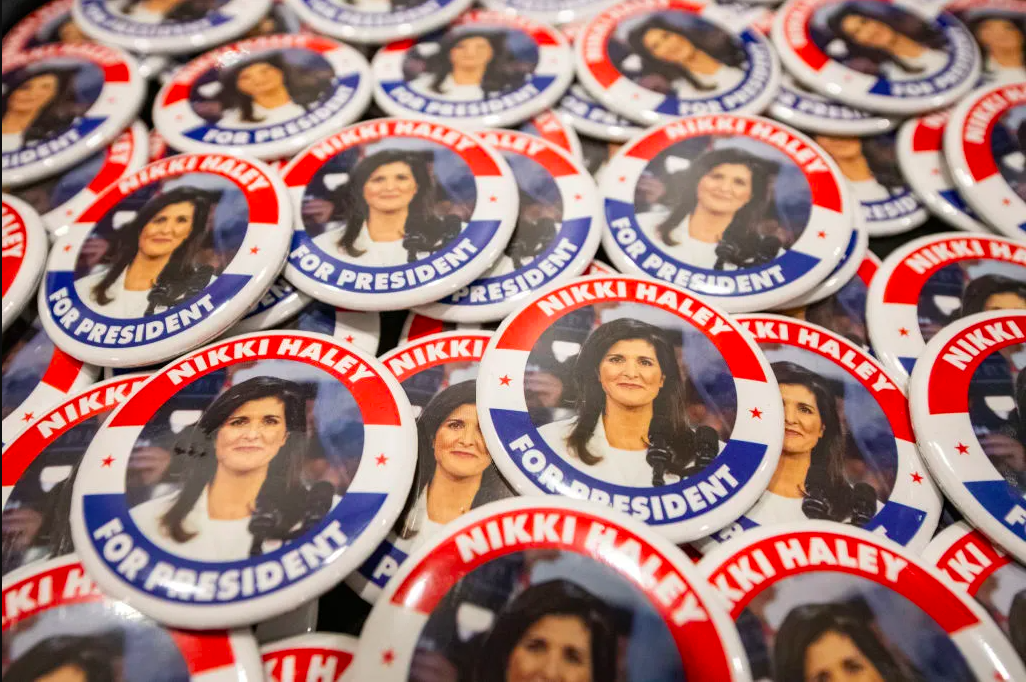
Published 03/04/2024 15:42 | Edited 03/04/2024 16:27
Last Sunday (3), former South Carolina governor Nikki Haley reached a significant milestone by winning her first Republican presidential nominating contest in the Washington, DC primary. There are those who reckon that this victory not only boosts Haley’s campaign, but also signals a potential challenge to expectations set ahead of next week’s Super Tuesday competitions.
In a surprising turnaround, Haley surpassed former President Donald Trump, who has dominated public polls in nearly every state participating in Super Tuesday. However, with a margin of 63% of the vote, Haley secured a convincing victory over Trump, who received just 33% of the vote. With just over 2,000 Washington Republicans participating in the primary, Haley secured all 19 of the District’s delegates.
With a base of moderate Republicans, many of whom were involved in politics or government, Washington offered Haley a unique opportunity to succeed. In contrast to Donald Trump’s victory in the 2016 Washington primary, where she won just 14% of the vote, Haley managed to secure a convincing victory, capturing 63% of the vote.
Unlike other early states like South Carolina and Iowa, where Trump enjoyed significant support in previous primaries, Washington presented more fertile ground for Haley’s candidacy.
However, participation expectations were initially low, which led strategists to consider the competition unpredictable. Patrick Mara, chairman of the Republican Party in Washington, previously expressed his expectation of a turnout of between 2,000 and 6,000 voters, thus opening the possibility for any candidate to emerge victorious.
Idiot brain
As Haley celebrated her achievement, former President Donald Trump wasted no time in reacting, falsely claiming on social media that Haley had “spent all her time, money and effort” in Washington. His derogatory rhetoric included references to Haley using the nickname “Birdbrain,” reflecting the ongoing tension between the two.
The Trump campaign, in turn, took the opportunity to discredit Haley’s victory, labeling her as the “Swamp Queen,” an allusion to Trump’s derogatory nickname for the city of Washington. However, Haley’s supporters argue that his victory reflects moderate Washington Republicans’ rejection of the political chaos associated with the Trump administration.
Despite the mobilization strategies adopted by both campaigns, Haley’s victory surprised many political observers. Her achievement not only makes her the first woman to win a Republican primary in United States political history, but also validates her position as a strong contender in the presidential race.
In response to her victory, Haley’s spokeswoman, Olivia Perez-Cubas, highlighted Washington Republicans’ rejection of Trump, describing them as “closer to Washington’s dysfunction.” This victory represents not only a triumph for Haley, but also an indication of the diversity of opinions within the Republican Party.
However, despite this early momentum, Haley faces an uphill challenge in her pursuit of the presidential nomination, with Trump still maintaining a substantial lead in terms of delegates. Trump is expected to secure a majority of delegates in the coming weeks, thus cementing his position as the leading Republican candidate.
As Haley celebrates her victory in Washington, her true test awaits in the next stages of the presidential race. With Super Tuesday quickly approaching, the battle for the Republican nomination is far from over, and Haley will have to face significant challenges to maintain her momentum in this fierce political competition.
In a recent interview, Haley suggested she may not honor her promise to support the winner of the primary, raising questions about the future of her campaign.
Biden, despite everything
Last Tuesday, US President Joe Biden secured a comfortable victory in the Democratic primary in Michigan despite facing significant challenges from a group of voters angered by his support for Israel’s war in Gaza.
Progressive activists and Arab-American leaders urged Michigan Democrats to vote “disengaged” rather than support Biden, a worrying sign for his expected re-election against Donald Trump in a crucial swing state.
Dissent within his own party has emerged as one of the biggest political challenges for Biden’s campaign, raising fears that he may face difficulty uniting the center-left coalition behind his candidacy in November.
Voters who opted for the “uncommitted” campaign wanted their elected authorities to listen to them and understand their pain, thus expressing their discontent with Biden’s stance on the war in Gaza.
Despite this, Biden secured a significant victory in Michigan, winning 81.1% of the votes, while 13.3% opted for “uncommitted”. Candidates Dean Phillips and Marianne Williamson received 2.7% and 3% of the vote, respectively.
Biden highlighted his economic policies and efforts to protect reproductive rights in his statement after the vote, although he did not mention the war in Gaza directly.
The negative reaction to the war in Gaza has placed foreign policy at the center of the race for the White House, alongside other important issues such as immigration, the economy and the character of the candidates.
Michigan is a swing state that has been decided by narrow margins in recent election cycles, making discontent with Biden’s foreign policy a significant concern for his re-election campaign.
Despite the challenges, Biden remains optimistic and committed to uniting the party and moving toward the November election. Michigan’s diversity of backgrounds, ideologies and cultures represents a richness for the state, but it also makes for a challenging choice for voters.
Source: vermelho.org.br

